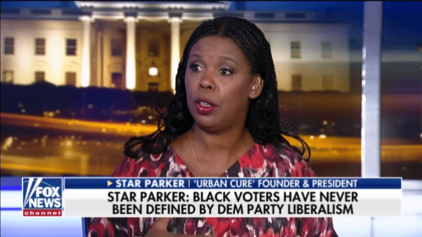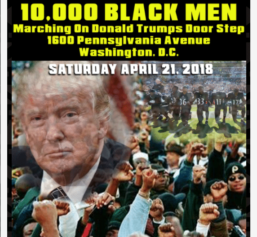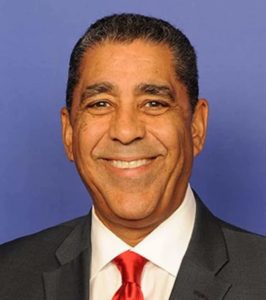
Congressman Adriano Espaillat (D-NY). Credit: Wikimedia Commons.
A debate making its way through the Congressional Black Caucus raises some fundamental questions: Who is Black? What does it mean to be African-American? And do Afro-Latinos have a seat at the table?
The group of Black lawmakers is mulling over whether to admit Congressmember Adriano Espaillat (D-N.Y.) to their ranks. Espaillat, a newly minted lawmaker on Capitol Hill, became the first Dominican-American member of Congress when he was elected in November. He also is the first formerly undocumented immigrant to hold office in the federal legislature. Espaillat served in the New York State Assembly, where he was chair of the Black, Puerto Rican, Hispanic & Asian Legislative Caucus, and most recently was a member of the state Senate. He replaced the retired Rep. Charles Rangel, who was a founding member of the CBC and had served in the House since 1971.
At issue is whether Espaillat is Black and identifies as such or is merely playing politics. The evidence points to an embrace of his Black identity. “I am a Latino of African descent. It doesn’t matter if you’re from Cuba or the Dominican Republic or South Carolina or Alabama, the roots are the same and I hope we can build upon that,” he told the New York Daily News, noting that his first mentor was an African-American civil rights leader and Baptist preacher.
Meanwhile, the 13th District of New York that Espaillat represents includes Harlem and parts of the Bronx and holds great significance to the African-American and Latino communities. And there is a lot of racial intersectionality in this area of New York, as noted by Rafael Collazo, political analyst and host of a Latino-focused political podcast, “Ray’s Talk Show.” After all, the part-Black, part-Latino district is home to the Schomburg Center, named in honor of the Afro-Latino historian and scholar Arturo Schomburg. “It houses not only the largest Dominican community in the U.S., but the most prominent Black district and the most prominent Puerto Rican district,” Collazo told Atlanta Black Star.
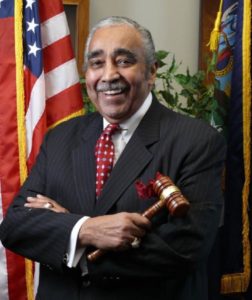
Rep. Charles Rangel (D-NY). Credit: Wikimedia Commons.
“I think he’s making a strong statement to be included in the CBC. Congressman Rangel was half-Puerto Rican and he was in the CBC,” Collazo said. “The fact that a Latino in this time wants to be identified as a Black member of Congress, I have no reason to believe he is not sincere,” he added, while also acknowledging the underlying politics involved. “The CBC membership is probably weighing his sincerity of joining the CBC as an Afro-Latino. He may be politically positioning himself to make it difficult for an African-American to challenge him,” Collazo said, arguing that lawmakers join certain caucuses to benefit their constituencies.
Meanwhile, for Espaillat, the political elephant in the room is that he challenged Rangel for his seat twice — in 2012 and 2014 — coming close to defeating the veteran Congressman. Espaillat raised Rangel’s ethics problems in the races, which helped expose political and ethnic divisions in the district. For the Black Caucus members who regard Rangel as an icon and do not yet know Espaillat, Collazo argued, those campaigns likely rubbed them the wrong way.
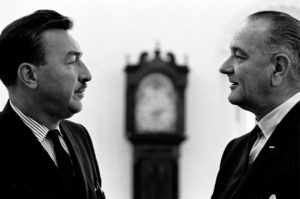
Rep. Adam Clayton Powell, Jr., and President Lyndon B. Johnson. Credit: Wikimedia Commons.
Ironically, this story of a newcomer challenging the old guard in Harlem takes us back to Rangel’s own rise to power in Congress. In 1971, Rangel, then a member of the State Assembly, beat the audacious and powerful Adam Clayton Powell Jr. in the Democratic primary, making Powell’s long absences from Capitol Hill a campaign issue, as The New York Times reported. And it angered some in the Black community that Rangel replaced Powell, who was once the chair of the House Education and Labor Committee and the most powerful and outspoken African-American in Congress. In the 2010 primary, Rangel defeated Powell’s son, State Assemblyman Adam Clayton Powell IV — who was born and raised in San Juan and whose mother was Puerto Rican.
The rise of Rep. Espaillat comes at a time of heightened consciousness among Afro-Latinos in the U.S. and Latin America. This comes with the backdrop of a long and complicated history of racial identity and colonialism in which blackness has been denigrated and often not acknowledged. There are 130 million Afro-Latinos in Latin America, according to the Project on Ethnicity and Race in Latin America (PERLA) at Princeton University. This includes over eight million in the Dominican Republic, the country of Rep. Espaillat’s birth. A Pew Research Center survey of Latino adults found that one-quarter of Hispanics in the U.S. identify as Afro-Latino, Afro-Caribbean or of African descent with roots in Latin America.
“In the Dominican Latino community, it hasn’t been controversial,” Collazo said of Espaillat’s outreach to the CBC. “Maybe a generation ago — 15 to 20 years ago — that idea would have been controversial,” he said, noting that the Latino population in the U.S. has come a long way and has become more aware of its intersectionality. “This does speak to a greater awareness in the diaspora around Blackness. I think Obama’s tenure facilitated that process. It instilled pride among Blacks and Afro-Latinos around the world,” Collazo said. “On the flipside, you have a presidential administration that does not prioritize Black issues or celebrate Blackness in any way. The question is, will that tamp down Blackness in Latin America?” he asked, concluding it will not.
